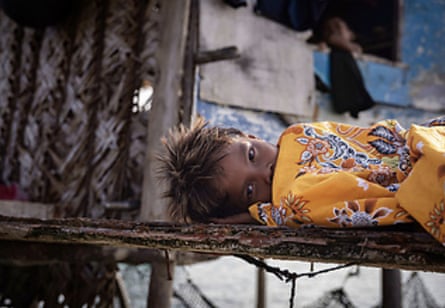The Bajau people have been crisscrossing the waters of the Sulu Sea for centuries, the world’s only community of self-sufficient sea nomads. To the Bajau, a “border” is merely the farthest distance they can reach by boat.
Noted for their exceptional freediving abilities, the Bajau have evolved to have larger spleens, enabling them to stay underwater for up to 10 minutes at depths of 200 feet. Their diet includes a diverse array of sea creatures, including sea cucumbers – a valuable protein source also used for medical purposes and even as an aphrodisiac.
-
Only about 100 to 200 Bajau families still live on the traditional Lansa houseboats. This one, part of the Bohey Bual community off Bodgaya Island, has 10 sq metres of living space and houses nine people
As early as the 15th century, various bands of Bajau migrated between the Philippines and Malaysia’s Sabah region, fostering cultural exchanges and settlements. Life for the Bajau became more complex in the colonial era when Malaysia, the Philippines and Indonesia created maritime borders in the Sulu zone: these frontiers were established in the Madrid protocol of 1885, without bothering to consider the distribution and diversity of the ethnic groups who lived there.
But it was the Malaysian Immigration Act of 1959/1963 that most significantly changed things for the Bajau. This legislation failed to distinguish between asylum seekers, refugees, irregular migrants and undocumented or stateless individuals.
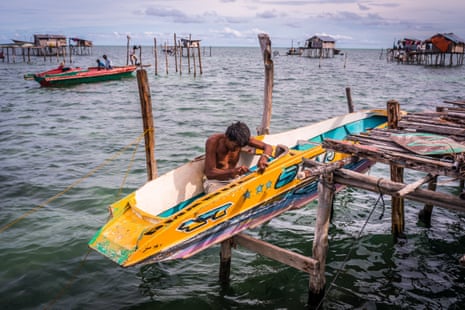
-
Using self-taught carpentry skills, a Bajau can build a fishing boat in about a week without any drawings to work from. ‘These methods have been delivered from generation to generation, it’s in our genes,’ says Nalu, a Bajau who came from the Philippines 26 years ago
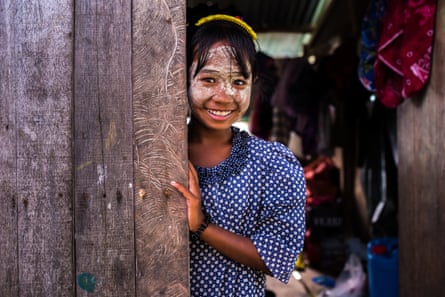
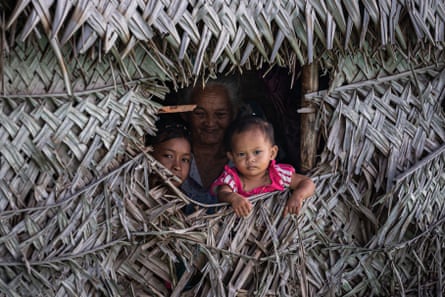
Suddenly the Bajau were in a precarious legal situation – one that worsened during the civil war in the Mindanao region in 1970, compelling numerous Bajau families to set sail for the east coast of Borneo, where they have grappled with Malaysia’s bureaucratic processes ever since – neither stateless nor citizen.
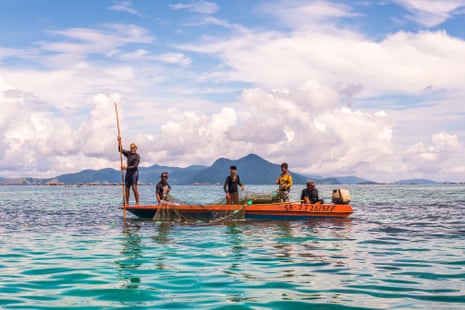
-
Using dugouts and nets, the Bajau fish the shallow waters around the island for fish, lobsters, sea cucumbers and sea urchins
As of 2023, only about 100 to 200 Bajau still live in the traditional “Lansa” houseboats near the eastern Malaysian city of Semporna. Lacking citizenship or formal rights to settle on the Borneo mainland, the Bajau of Philippine origins still preserve maritime hunting techniques passed down through generations. As well as relying on these techniques for subsistence, they trade surplus fish, lobsters and sea cucumbers with islanders, stocking up on essential survival items in return.

-
Bangau Bangau settlement in Semporna, Sabah (Borneo, Malaysia), where many Bajau eventually live
However, the scarcity of funds for repairs, coupled with the local national park’s restrictions on cutting trees, are increasingly forcing those few who remain to consider moving to the mainland – where a life as displaced outcasts in the Bangau Bangau settlement seems inevitable.
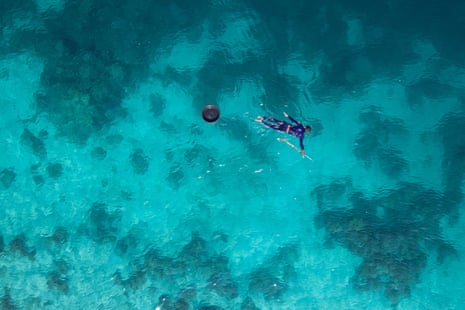
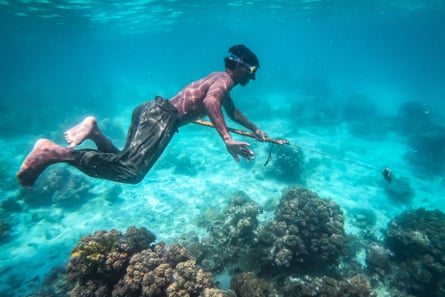
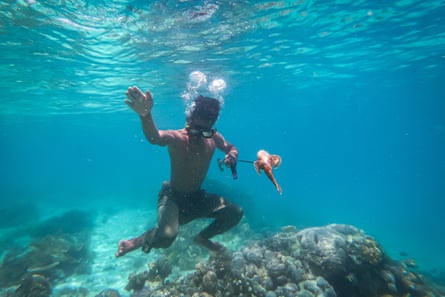


-
Almost every day Asli and Silaji take their spears and go fishing together. From an early age, the children of the Bajau comb the shallow waters in search of sea cucumbers or sea urchins. Any surplus catch is sold on the streets of Semporna
Out in the vastness of the Sulu Sea, the Bajau stand as emblems of self-sufficiency, but once they set foot ashore they find themselves relegated to the lowest social class. Their stateless status deprives them of government privileges: the children cannot access public schools and adults are prohibited from finding formal employment.


With a different conception of time to many mainlanders, and with little formal education, the Bajau remain apart – forced to fit in yet barred from doing so – while preserving, as they have for centuries, a unique way of life.
